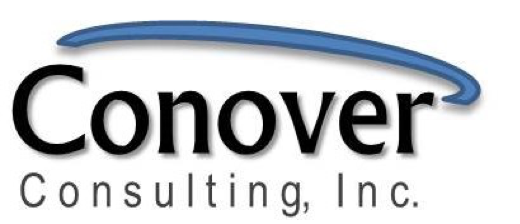Relationships: The Fuel of Life — And Key to a Strong Office Culture
In my previous blog this month, we talked about how forward-thinking companies should handle grief. We noted how surviving this difficult phase can be improved by having good relationships with people whom we consider safe and supportive, those who have experienced losses similar to our own.
This discussion of grief is part of a larger conversation about workplace culture, including the importance of openness and communication between managers and direct reports. While effective leaders have always put a premium on emotional intelligence, the topic has become increasingly relevant as the Millennial generation, a group driven by the need for purpose, has become the majority demographic in the American workforce.
So, let’s talk about the importance of building and maintaining good workplace relationships. In his new book, People Fuel: Fill Your Tank for Life, Love, and Leadership, Dr. John Townsend, best-selling author, business consultant, and psychologist likens relationships to nutrients. They are the fuel powering any business organization. Just like the body needs iron and other vitamins to function properly, every business organization requires a variety of relational nutrients to be productive and profitable.
Accordingly, Townsend lists 22 “Relational Nutrients” he divides into four quadrants. These include:
Quadrant 1: Be Present
Actively listening and tuning into someone’s emotional state is key. Sometimes described as “holding space,” being present means being there for someone else as an interested and engaged party. Nutrients: acceptance, attunement, validation, identification, containment, comfort.
Quadrant 2: Convey the Good
It’s easy to be critical, especially when someone makes a mistake.
But doing so can be unduly discouraging, leading to burnout. Instead, focus on the positive, especially when it comes to leadership strengthening. Nutrients: affirmation, encouragement, respect, hope, forgiveness, celebration.
Quadrant 3: Provide Reality
On the other hand, a dose of cold water is needed at times to objectively assess a situation or relationship. The use of candor can illuminate a challenging situation, helping to clarify what needs to be done. Nutrients: clarification, perspective, insight, feedback, confrontation.
Quadrant 4: Call to Action
Feedback and discussion are helpful, but so is proactivity. The more we can engender decisive (and informed) action, the better the outcome will be. Nutrients: advice, structure, challenge, development, service.
The Takeaway
If we boil these nutrients down to a single idea an organization can implement, it’s this: Don’t Try to Do It Alone. Nothing great was ever achieved by an individual working in isolation. Inventor Thomas Edison had his Menlo Park research and development team. Artist Vincent Van Gogh had the support of Paul Gaugin, Henri de Toulouse-Lautrec, and Émile Bernard. Even so-called “Lone Eagle” Charles Lindberg was financed by nine St. Louis businessmen and had his plane built by the brilliant engineers at San Diego’s Ryan Aircraft Co. Just listen to any entertainment industry awards acceptance speech and you’ll realize how many people are needed to make one person a “star.”
Benefits of Nutrient-Rich Relationships
Even just knowing someone has your back can push you beyond your usual boundaries. Here’s an example. A friend of mine — we’ll call her Debbie — recently ran the Walt Disney World ½ Marathon in Central Florida. As an amateur, she had no illusions of actually winning the race, or even placing in the top dozen. Like Rocky Balboa in the original 1976 Rocky, all she wanted to do was “go the distance.”
She trained for months. She followed a strict diet. She worked out daily. She even performed several practice runs. But when the day came for the race, she had a head cold and her knees hurt. Physically, she didn’t feel up to competing. At all. Yet, she was determined to achieve her goal.
And so she ran. Through the heat. Through the pain. But as she neared the last third of the 13.1-mile-long race, her energy began to wane. Her breathing became rapid and shallow. Every step became a torturous effort. She knew she needed help if she was going to make it to the finish line.
The race’s rules allowed competitors to carry cell phones which they could use in case of emergency. And for Debbie, this was an emergency. So, while continuing to run, she put out a group text to her closest friends, asking for someone to call her. Her friend, Jenn, received the text and called back immediately to ask what was wrong. Debbie said she just needed someone to talk to, someone to help take her mind off what was happening physically.
And so they talked. They discussed their families. They conversed about how they spent the holidays. They conferred on books they recently read and movies they’d recently seen. Before Debbie knew it, she had crossed the finish line!
Although Debbie, like every other runner in the marathon, registered as a sole participant, she did not finish her race alone. Jenn had been with her; supporting. Sometimes, life itself can feel like a marathon. Yes, it takes individual grit, courage, and perseverance to run our individual race. But it also takes good relationships to keep us going, to help us get to the finish line.
As Townsend’s book makes clear, today’s leaders need to appreciate this fact. They must also embrace the growing importance of emotional intelligence. Likewise, forward-thinking organizations must make discussions concerning this issue part of their company culture. After all, none of us are in this alone.
Recently, Forbes interviewed me to discuss the importance of building and maintaining strong business cultures in the 21st century. For more information on how my team and I can help your team build a company culture that supports employees through life’s marathon, contact me @ laura@conoverconsulting.com. Let’s run this race together.
